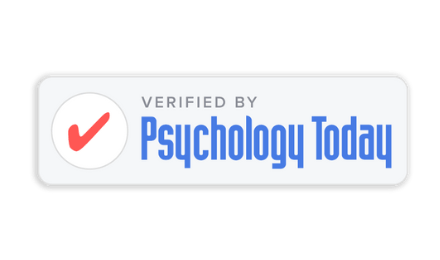Work-related anxiety is a growing concern in today’s fast-paced and high-pressure professional world. Persistent stress and anxiety can not only diminish productivity and job satisfaction but also negatively impact one’s overall well-being and work-life balance. Addressing work-related anxiety is an essential step to maintaining health, enhancing professional performance, and fostering a happier, more balanced lifestyle. The purpose of this comprehensive blog post is to provide valuable insights, practical strategies, and expert advice on managing work-related anxiety and boosting productivity.
The first section of the blog post will delve into the causes of work-related anxiety, providing readers with in-depth insights into factors that may contribute to anxiety, such as excessive workload, unrealistic expectations, lack of support, and workplace conflicts. Understanding the factors at play can help individuals pinpoint areas of concern and take necessary steps to address them.
The second section will explore the physical, emotional, and cognitive symptoms of work-related anxiety. By familiarizing themselves with these indicators, professionals can recognize when anxiety is taking a toll on their well-being, impacting their ability to function optimally in their professional and personal lives. In the third section, this blog will present practical strategies to manage and alleviate work-related anxiety. These may include time management techniques, self-care practices, stress-reduction methods, and establishing healthy work boundaries, all aimed at fostering a healthier and more sustainable work-life balance. Lastly, the role of professional counselling in managing work-related anxiety will be highlighted.
Armed with valuable information, practical tools, and access to Blue Sky Wellness Clinic’s expert counselling services, professionals can effectively manage work-related anxiety. As a result, they can thrive in their careers, foster a healthier work-life balance, and boost productivity for greater success.
Causes of Work-Related Anxiety
To effectively manage work-related anxiety, it is essential to recognize the common factors that contribute to stress and anxiety in the workplace. By acknowledging these factors, individuals can develop coping strategies and resources for dealing with these challenges.
1. Excessive workload: A consistently heavy workload can lead to feelings of being overwhelmed and ultimately result in increased anxiety and stress.
2. Unrealistic expectations: When employers, or even employees themselves, impose high or unachievable expectations, it can generate significant anxiety as individuals strive to meet these demands.
3. Lack of support: Feeling unsupported by colleagues, supervisors, or management can exacerbate anxiety levels as employees feel isolated or overwhelmed in managing their responsibilities.
4. Workplace conflicts: Interpersonal conflicts and challenging relationships within the workplace can create a hostile or uncomfortable environment, leading to increased anxiety and stress.
Recognizing Symptoms of Work-Related Anxiety
Understanding the physical, emotional, and cognitive symptoms of work-related anxiety is crucial to recognizing when anxiety is taking a toll on one’s well-being. Identifying these symptoms can help individuals seek appropriate support and intervention.
1. Physical symptoms: Tension headaches, fatigue, muscle aches, sleep disturbances, and stomach issues are some physical manifestations of work-related anxiety.
2. Emotional symptoms: Persistent worry, irritability, mood swings, and feeling overwhelmed are common emotional indicators of anxiety in the workplace.
3. Cognitive symptoms: Difficulty concentrating, racing thoughts, and persistent negative thoughts about work performance may signify cognitive manifestations of work-related anxiety.
Practical Strategies for Managing Work-Related Anxiety
Implementing practical strategies to alleviate work-related anxiety is essential for fostering a healthier, more sustainable work-life balance. These techniques can help to reduce stress and empower individuals to navigate workplace challenges more effectively.
1. Time management techniques: Prioritize tasks, break projects into smaller steps, and create a daily schedule to manage workload effectively and reduce feelings of overwhelm.
2. Self-care practices: Engage in regular exercise, maintain a balanced diet, ensure adequate sleep, and incorporate relaxation techniques, such as deep breathing or meditation, to support overall well-being.
3. Stress-reduction methods: Recognize and address sources of stress at work, establish a support network of colleagues and loved ones, and practice mindfulness techniques to refocus and reduce anxiety.
4. Establishing healthy work boundaries: Set clear boundaries around work hours, email communication, and personal life to maintain a healthier balance and prevent burnout.
The Role of Professional Counselling in Managing Work-Related Anxiety
Seeking counselling support from experienced counsellors, such as those at Blue Sky Wellness Clinic, can provide much-needed guidance and resources in managing work-related anxiety. By developing tailored interventions, counsellors can help professionals overcome work-related anxiety and achieve a healthier work-life balance.
1. Individual counselling: Counsellors can help clients identify the sources of their work-related anxiety, explore coping strategies, and develop techniques for managing anxiety and stress more effectively.
2. Cognitive Behavioural Therapy (CBT): CBT is an evidence-based therapy that addresses unhealthy thought patterns and behaviours contributing to anxiety. Counsellors can help clients reframe negative thoughts, develop adaptive coping strategies, and improve problem-solving skills to manage anxiety in the workplace.
3. Mindfulness-Based Approaches: Mindfulness techniques, such as meditation and controlled breathing, can help clients cultivate present-moment awareness, reduce stress, and increase focus at work.
Conclusion
Effectively managing work-related anxiety is vital to achieving greater productivity, job satisfaction, and overall well-being. By recognizing the causes and symptoms of work-related anxiety, implementing practical strategies, and seeking professional counselling support, individuals can foster a healthier work-life balance, thrive in their careers, and experience lasting success.
With the guidance and expertise of Blue Sky Wellness Clinic’s professional counsellors and tailored therapeutic approaches, individuals can obtain the necessary tools to manage work-related anxiety and create a positive, balanced professional life. Whether seeking in-person or online counselling services, trust in the experienced team of Blue Sky Wellness Clinic to help you overcome work-related anxiety and enjoy a more fulfilling, productive, and balanced life. Set an appointment with our therapist in Vancouver today!








